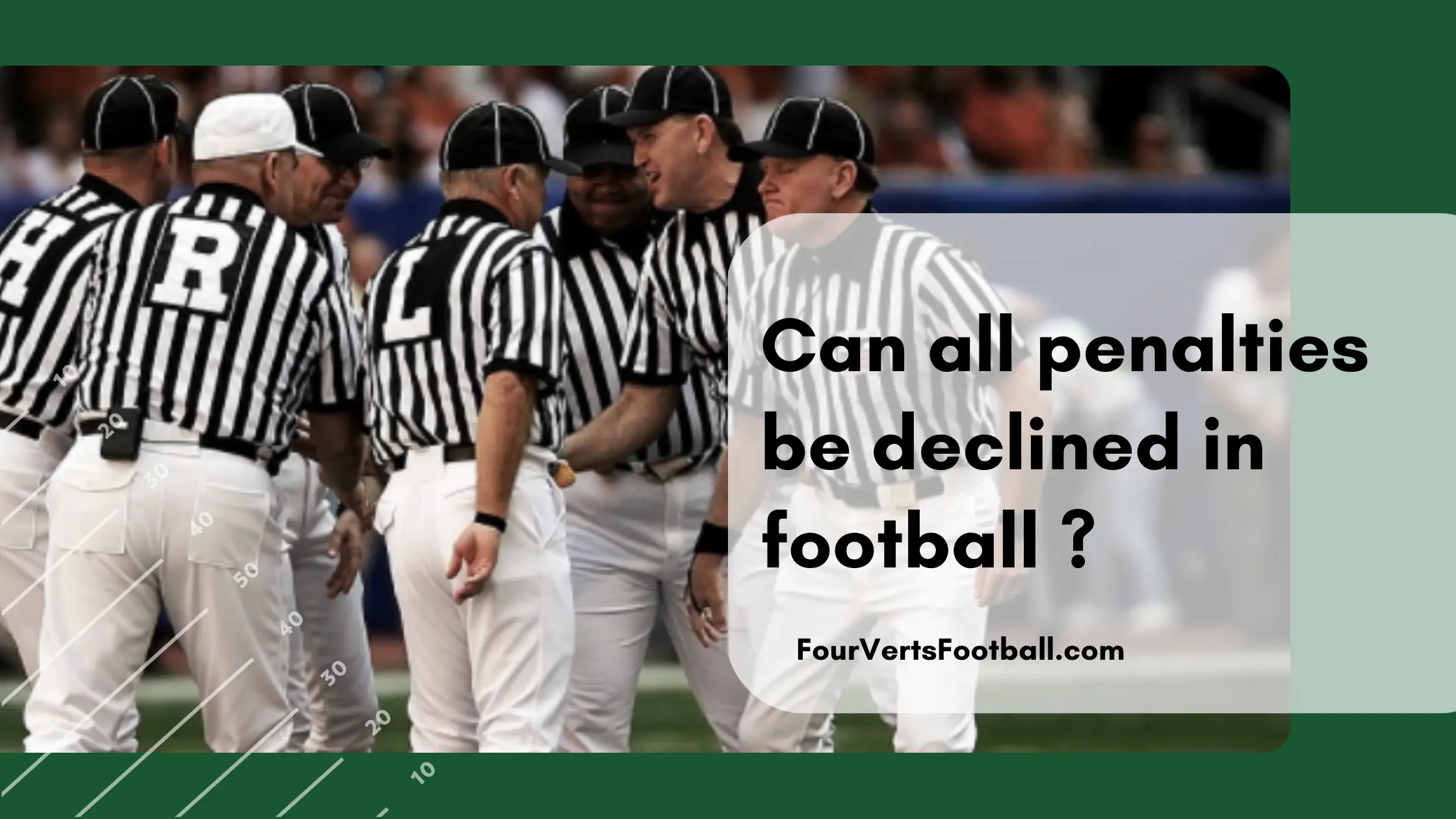Have you ever been watching a football game and wondered if all penalties in football can be declined? The simple answer to this question is yes all penalties can be declined in football.
Football coaches decline penalties for many reasons but ultimately it is always done in order to give their team a better chance to win the football game.
The most common reasons for declining a penalty are because, accepting the penalty would wipe out a big play for the offense or accepting the penalty would wipe out a big play by the defense.
In other words, penalties are usually declined because the play that occurred had a greater benefit than the outcome of accepting the penalty.
Misconceptions About Declined Penalties
Usually, the question “can all penalties be declined” is asked when a fan is confused as to why his team has accepted a penalty. The most common occurrence of this occurs with a false start or delay of game penalty. These are known as pre-snap penalties.
For example, a delay of game flag may be thrown right as the ball is snapped for a field goal. If the field goal goes wide many fans believe their team should simply decline the penalty and the field goal attempt would be no-good.
The issue is pre-snap penalties occur before the play. This means you can decline the penalty but since it happened before the play then the outcome of that play did not occur. In other words, the offense will attempt the kick again as the penalty occurred beforehand.
If you are wondering why your team accepted a penalty try and determine if it was a pre snap penalty. If it was that means the most recent play did not occur, which may give you the answer as to why the penalty was accepted.
Common Reasons To Decline Penalties
Big Play On Offense
The most common reason to decline a penalty on the offensive side of the ball occurs when a big play is made. As you likely already know the majority of penalties are going to move you five to ten yards down the field.
Say for example a twenty-five yard pass is caught by the receiver. Just about every penalty is not going to get you the twenty-five yards gained from that pass.
In this scenario, it would make sense for the penalty to be declined as it would result in more yards for the offense.
Big Stop On Defense
Says it is third down and the defense sends a blitz towards the quaterback. One of the blitzing safeties is held yet a defensive end is still able to tackle the quarterback for a sack.
A holding penalty is going to send the offense backwards ten yards and allow them to replay the down. A sack in this context would move the offense back fewer than ten yards but it would result in a loss of down.
Since a sack would make the put the offense on their fourth down the defensive team is going to decline that penalty.
Clock Management
Another reason that a team may elect to decline a penalty is for clock management. Say for example late in a game the defense is trying to hold onto a lead. In this situation the defense wants to run the clock out as much as possible.
If the offense completes a short thrown in bounds then the clock will keep running. If a ineligible lineman downfield penalty is called, this would send the offense backwards.
The trouble is accepting the penalty will erase that last play, putting more time on the clock and not letting it run after the player was tackled in bounds.
In this situation, the defense may elect to decline the penalty in order to allow the clock to run down. Depending on the situation allowing the clock to run down may give them a much better chance of winning.

